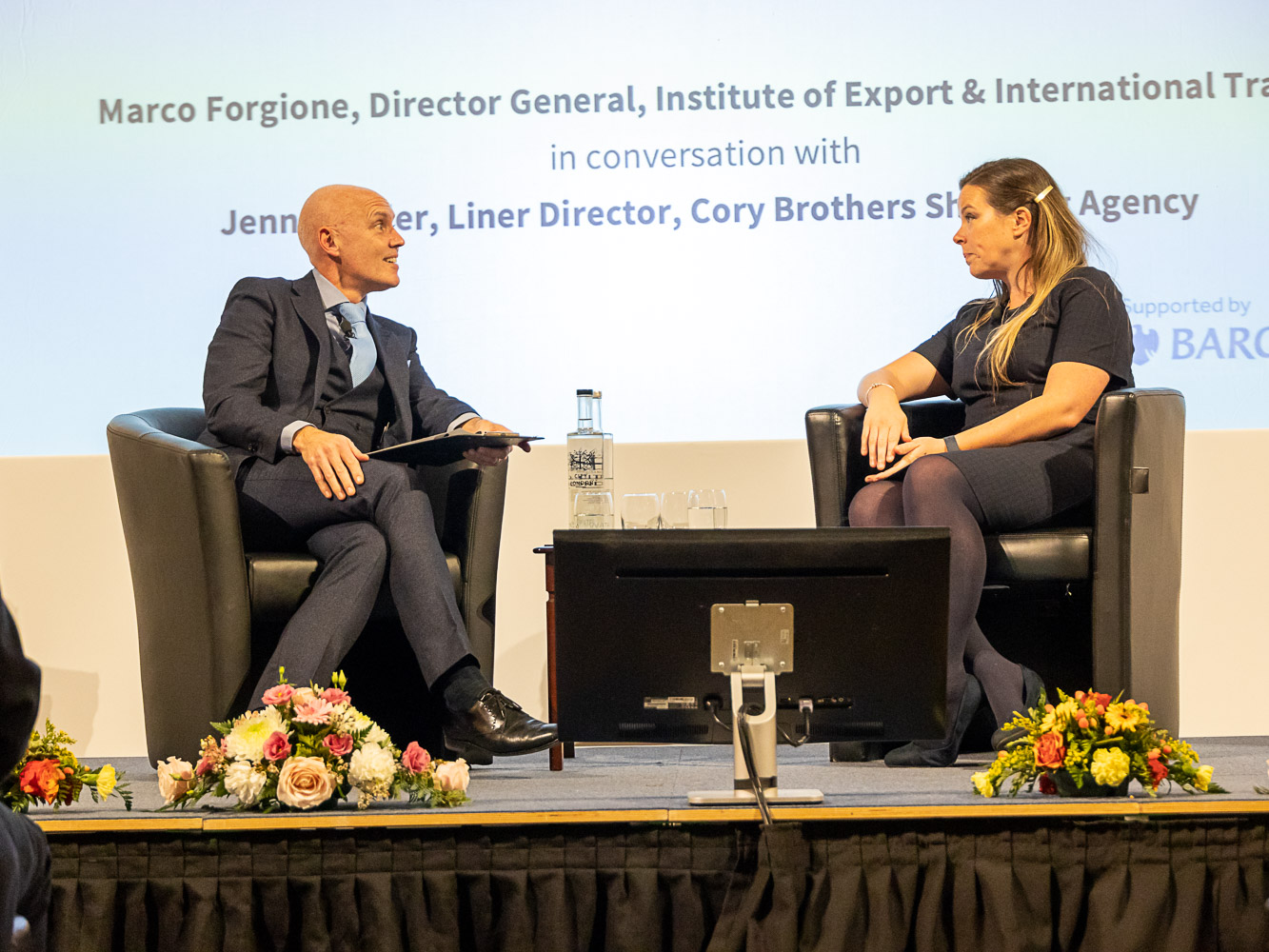
At the Institute of Export & International Trade’s (IOE&IT) 2022 graduation ceremony, director general Marco Forgione sat down with Jenny Butler to discuss her journey through the world of shipping and international trade.
After a varied start to her working life, with jobs in lots of different areas, Jenny found her start in trade with a job at Cory Brothers Shipping Agency, initially as a customer service agent. She then worked her way up to commercial manager.
She left the company for a five-year stint as break bulk manager at MSC Mediterranean Shipping, before re-joining Cory Bros as liner director, which is the role she still holds today.
Q: How did you get into international trade?
“It’s been an interesting ride, but it’s not been easy.”
“I grew up in California, but I met my future husband, who is English, and after a bit of backwards and forwards visiting between the US and UK, we decided to move to the UK after we got married.
“When I first moved here, I job-hopped a lot. I was young, didn’t know what I wanted and things didn’t quite fit: I worked retail jobs, I’ve also been a firefighter and have delivered car parts. In fact, to get my UK visa, I got an interview for a job scrubbing toilets in a hospital in Ipswich.
“None of those industries were fulfilling. And I needed something that made sense and that I felt was valuable. Initially, I was looking for something that was office-based that I could build from. When I was successful in getting that first job in shipping, everything just clicked.”
Q: What happened next?
“I went through multiple NVQs and any number of courses. It just worked and made sense to me. I wanted to learn everything I could about it. International trade is such a vast network; you’ll never explore all of it.”
“From then, I worked to acquire knowledge. It was Kevin Shakespeare, the IOE&IT’s director of special projects, that introduced me to the foundation degree.
“I was part of the first cohort of IOE&IT graduates. I had a full-time job, I had a family and my studying was done around eating, sleeping and working. Sometimes, it felt like it was too much, but you just get up the next morning and keep trying.”
Q: How has the world of international trade changed since you started?
“It’s become a lot more complicated.”
“There are always going to be complexities in international trade. It could be something ‘simple’ like Incoterms, but then there’s the increased complexities of the relationships of nations we’re trading with. It’s something you have to keep on top of and be aware of.
“The consequences of making a poor decision are becoming increasingly complex each year, so a good understanding of trade is crucial to our development, both for the nation and a world.”
Q: What is the one piece of advice you’d give our graduates
“Apply everything you’ve learned a little bit a time. Don’t try to make too many changes at once. When you apply this knowledge in a practical sense, you’ll see something that makes sense now that didn’t when you first started studying.
“If you keep paying attention to those things that click, this will naturally support you as you move forward in whatever field you choose.”



